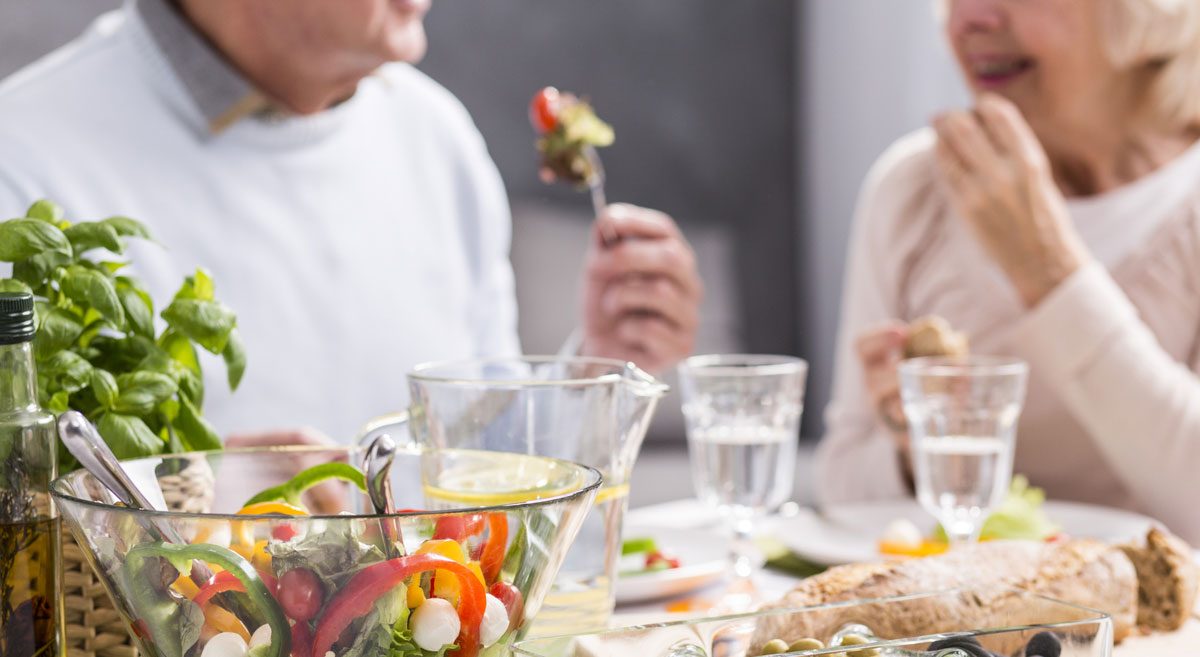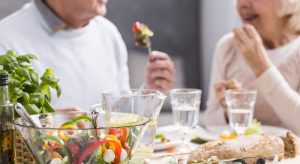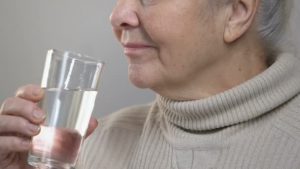DIET AND EXERCISE TIPS FOR SENIOR CITIZENS

Learn how to combat the physical, mental and physiological consequences of ageing.
21st August, 2019

Nutritional Guidelines:
- Have well-balanced, portion-controlled meals.
- Avoid strenuous exercises.
- Include enough fiber in the diet to prevent constipation.
- Reduce excess salt consumption.
- Stay hydrated—drink enough water throughout the day.
- Take your multivitamins daily to keep your immunity up.
- Do strengthening exercises like swimming, light weights, toning etc to prevent bone loss (always under an expert’s supervision of course)
- Sleep for a minimum 7 hours.
Currently Senior Citizens Fall Into These 3 Categories:
- Young-Old (65-75yr old)
- Old-Old (75-85yr old)
- Oldest-Old (85yr and above)
Studies indicate that with every decade there is a 5 per cent reduction in BMR. After the age of 60, all the changes start.
Physical Changes:
- Drier Skin
- Hair loss and/or hair thinning
- Fragile teeth and weak gums
- Fragile nails
SelfCare Suggests:
–To maintain healthy hair, skin, nails and oral hygiene, the first step is to reduce your sugar intake as it accelerates the process of ageing.
-Your diet should include first class proteins like yoghurt, eggs, fish, chicken, milk and paneer to help maintain the elasticity of skin and strength of hair roots. –Proteins help in improving salivation, thereby maintaining oral hygiene.
– Include foods rich in vitamin C as they help rebuild collagen under the layer of skin.
Psychological Changes:
- Memory loss
- Dementia
- Sensory changes in taste and smell.
- Depression

SelfCare Suggests:
- Memory loss and sensory changes are normal as you age, but with the right kind of diet and exercise you can delay their onset.
- It is very important for older adults to perform certain mental and physical exercises like playing cards, word puzzles, socializing, going for walks etc to help prevent dementia.
- Include foods like salmon, nuts, green vegetables, fruits and whole grains.
Bone Changes:
- Osteopenia/ osteoporosis
- Bone loss or muscle loss like sarcopenia
- Bone or joint pain
SelfCare Suggests:
- Bone loss is more prominent if there is a deficiency of certain vitamins like vitamin D, calcium and magnesium
- Foods rich in calcium like milk and milk products should be part of daily diet. One must test their blood levels of vitamin D3 every 6 months basis to prevent fractures.
- Exercise should include some resistance exercise like weight training or functional training to multiply the bone cells osteoblasts which prevents bone loss.
- Reduce processed foods that have high salt content
Gastric Changes:
- You decrease less hydrochloric acid
- Immune response slows down
- Digestion is affected, may develop lactose intolerance
SelfCare Suggests:
- To avoid constipation, the diet should be rich in fibre. Include foods like wheat, jowar, spinach, carrots, peas, cauliflower and


